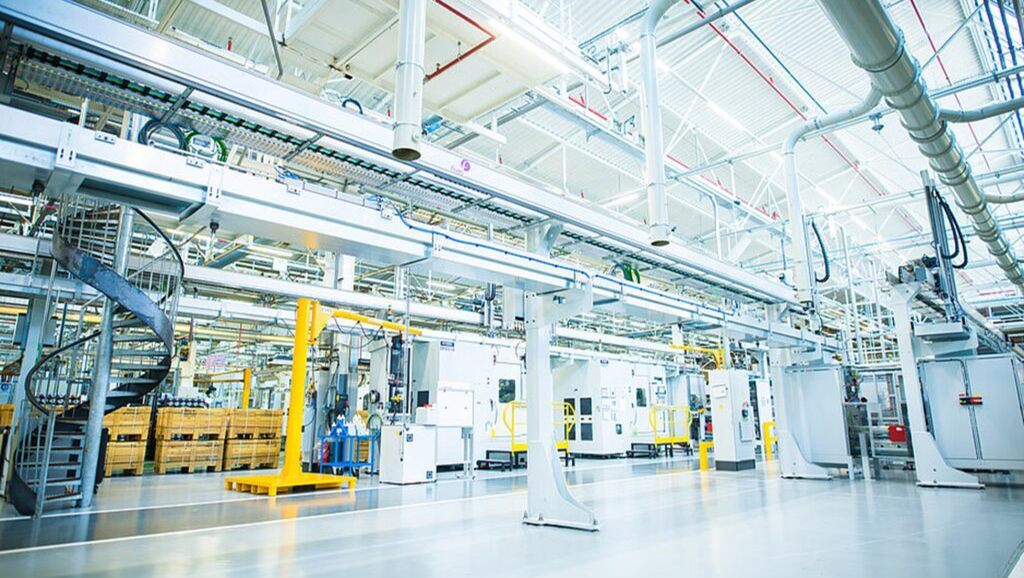Industrial automation uses machines and software to control industrial processes, replacing or augmenting human operators. Automation helps companies achieve improved quality, increased production rates, and reduced costs. In this blog post, we will discuss what industrial automation is and how it works. We will also explore the benefits businesses can experience by implementing an industrial automation system.
Industrial automation systems can be used in a variety of industries, including manufacturing, automotive, food and beverage processing, pharmaceuticals, and logistics. In each of these industries, there are specific tasks that are repetitive and often dangerous for humans to perform. By automating these tasks, businesses can improve safety while increasing efficiency and productivity.
Some examples of tasks that can be automated using industrial automation systems include welding, painting, thermolators for injection molding, assembly line production, hopper dryers to control moisture, packaging and labeling, material handling, and quality control. These are just a few examples; the possibilities for automation are nearly limitless.
Types of Industrial Automation Systems
There are two main types of industrial automation systems: discrete and process. Discrete automation systems are used for tasks that can be completed independently of each other, such as assembling a car or packaging food products. On the other hand, process automation systems are used for tasks that must be completed in a specific order, such as manufacturing chemicals or refining oil.
Some more automation types are:
Hard Automation
Hard automation, also known as fixed automation, is a type of automation where machines are dedicated to a specific task and are not easily reconfigured to perform other tasks. This contrasts with soft automation, or programmable automation, where machines are more versatile and can be configured to perform different tasks. Hard automation is often used in high-volume applications where there is a need for high precision and repeatability. It can also be used in situations where safety is a concern, such as in producing hazardous materials. While hard automation can provide many benefits, it can also be inflexible and expensive to change or upgrade. As a result, it is important to carefully consider whether hard or soft automation is more appropriate for a given application.
Soft Automation
Flexible automation, also known as soft automation, is a type of automation that uses less rigid and more flexible methods and equipment. It is designed to be more adaptable and easier to change than traditional hard automation. Flexible automation is often used in manufacturing applications where the product being produced is likely to change over time. For example, a manufacturer of cell phones might use flexible automation to produce different models of phones with different features. Flexible automation can also be used in applications where the production rate is not constant, such as when demand for a product fluctuates. In general, flexible automation is more expensive than hard automation. Still, it can be a worthwhile investment if it allows a company to be more agile and responsive to changes in the marketplace.
Programmable Automation
Programmable automation uses programmable controllers to automate a process or manufacturing operation. This can include anything from simple tasks such as turning on a light or moving a conveyor belt to complex operations such as controlling an entire production line. Programmable automation has many benefits over traditional, manual methods of manufacturing. It is more accurate, efficient, and consistent and can easily change to accommodate new products or processes. Additionally, programmable automation can create custom sequences that are impossible with manual methods. As a result, programmable automation is an essential tool for modern manufacturing operations.
Benefits of Industrial Automation
Industrial automation can provide businesses with many benefits, including increased efficiency and productivity, improved quality control, reduced costs, and enhanced safety. When implemented correctly, an industrial automation system can help a business to achieve its goals and remain competitive in today’s marketplace. For example, hopper dryers automatically maintain moisture in the atmosphere, preventing many associated problems.
Contact us today if you’re interested in learning more about industrial automation or implementing an automation system in your business.
Checkout Our: AIR COOLED CHILLERS HBC SERIES


